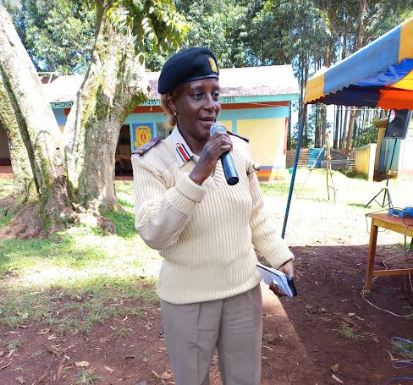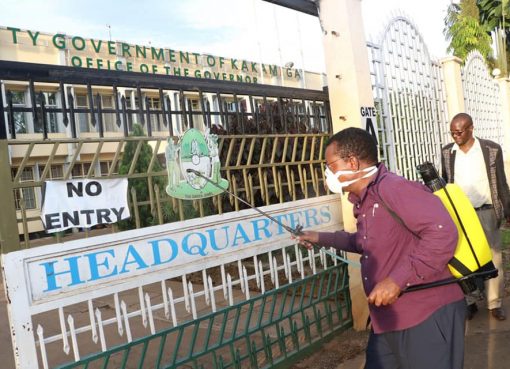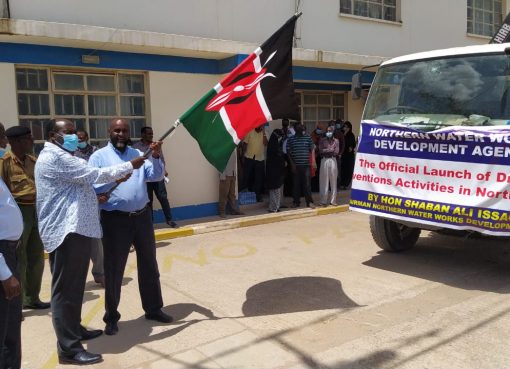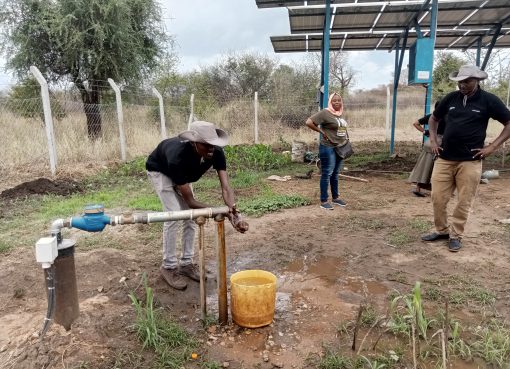In a significant step towards modernising its registration and identity ecosystem, the government is prioritising the implementation of the Maisha Namba project, which is set to revolutionise the way Kenyan citizens access government services and secure their identities.
Speaking during a baraza held at Sengera grounds in Kisii County to educate and sensitise residents about the project, Gucha Deputy County Commissioner (DCC) Esther Kungu and the Sub-County Registrar of Persons Caroline Andama, among other government officials, underscored the government’s commitment to improving citizen services by embracing ICT.
Addressing the residents, Andama noted that the country’s National Registration and Identity system had lagged behind neighbouring nations, putting Kenya at risk of non-compliance with international standards enforcement agencies.
“Kenya’s current registration and identity system, which is approximately three decades old, has become obsolete compared to newer, more advanced technologies. This technological gap has made it imperative for the country to upgrade its system to meet global standards and align with the digital economy,” she stated.
The registrar added that digitization of registration services promises to address various challenges, including identifying and authenticating citizens, safeguarding primary registration documents such as birth certificates and national identity cards, and improving the management of social programmes and government operations.
“At the heart of this digital transformation is the Maisha Namba, a unique Personal Identification Number assigned to every Kenyan citizen upon birth registration,” said the registrar, adding that the Maisha Namba will serve as a lifelong identity from birth to death and will replace traditional birth certificate numbers.
She said the number will also act as the registration number for government services, including education enrollment, health insurance, and others, while also serving as a Personal Identification Number (PIN) for tax and social security purposes.
On her part, the Deputy County Commissioner echoed Andama’s views, adding that one of the key advantages of the Maisha Namba is its ability to eliminate the need for multiple enrollments and registrations.
“Existing ID numbers will be retained, ensuring a seamless transition for Kenyan citizens,” said Kungu, citing that the digitised registration system includes features like a Digital Identity for online transactions, an Electronic ID with a chip for data storage and authentication, and the use of iris and facial recognition in addition to fingerprints for biometric authentication.
Equally, it was noted that the 3rd Generation ID Cards, which will be rolled out as part of this project, will be issued without the need for new mass registrations, instead relying on existing identification information held by various government agencies.
At the same time, it will incorporate advanced cryptographic technology for data security and support web-based and offline identity authentication, digital signatures, and access to e-service platforms.
The Maisha Namba Project marks a significant leap forward in Kenya’s journey towards a digitally enabled, efficient, and secure identification system, ultimately contributing to improved service delivery and national security.
Meanwhile, as the project gains momentum, it is expected to bring about transformative changes in the way Kenyan citizens interact with government services.
The move will streamline and efficiently enhance the delivery of services to citizens while ensuring a robust and secure identification and authentication system for all Kenyan residents, in line with the concept of ‘Gava Mkononi’.
By Misheba Alfred and Majid Hussein





